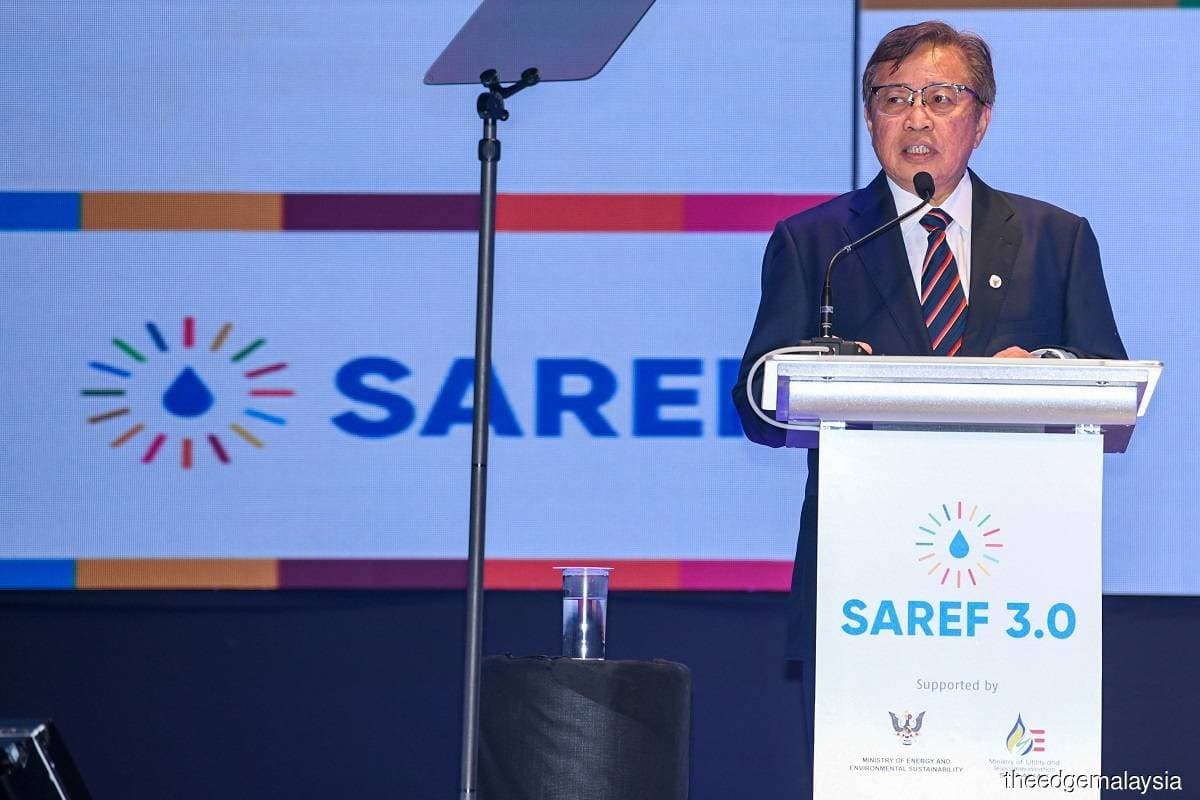
KUCHING (Sept 6): Sarawak is in “advanced” stages of negotiations to export renewable energy to Singapore through undersea cables linking it directly to the island-state, said Sarawak Premier Tan Sri Abang Johari Tun Openg.
Sarawak’s state-owned Sarawak Energy Bhd is now working with Brunei and Singapore to explore more exports of electricity, Abang Johari said. The utility firm has been spearheading the initiatives to build grid connections with neighbouring countries.
The state already has an interconnection with Kalimantan, Indonesia, since 2016. Singapore, in search of green energy, is aiming to import up to 4GW of low-carbon electricity by 2035. A request for proposal, open to all but coal-fired generation plants, closes on Dec 29 this year.
“Sarawak Energy, together with their partners Sembcorp Industries and SP Group, have completed comprehensive technical studies and are well advanced in their commercial negotiations for an interconnection with Singapore, with direct undersea power cables linking Sarawak and Singapore,” said Abang Johari.
Speaking at the opening ceremony of the Sustainability & Renewable Energy Forum (SAREF) 3.0, Abang Johari said renewable energy (RE) is a key enabler for Sarawak to achieve its development goals.
This will be achieved by introducing more sources of RE such as hydropower and hydrogen into Sarawak’s energy mix, investing in new technologies like carbon capture, utilisation and storage (CCUS) and exporting RE to neighbouring countries, he said.
“We believe this will ensure economic prosperity, social inclusivity and a sustainable environment for all of Sarawak’s people. If we manage the interconnection well as a region, it will be for all Southeast Asians.
“We see this as crucial in encouraging cross-border electricity trade for the region. Interconnections are one of the primary ways for our region to achieve regional net zero and energy transition targets,” said Abang Johari.
On the decarbonisation of the energy sector in Sarawak, Sarawak Energy has already begun de-commissioning older coal power plants in the state, and is tasked with maintaining at least 60% of RE capacity mix by 2030, reducing carbon emissions by 600,000 tonnes per annum by electrifying Sarawak’s mobility fleet by 2030, and achieving more than 15% income from foreign markets, including from the pursuit of power exports.
Currently, the state’s energy mix comprises primarily large hydroelectric power. A fourth hydroelectric dam in Baleh is scheduled for completion towards the end of the decade.
“In developing our hydropower plants, less than 1% of Sarawak’s total land area has been affected by the formation of reservoirs. Should we develop the remaining nine sites [that are planned], we expect only 2% of our total land area to be affected,” said Abang Johari, adding that hydropower reduced the carbon emissions intensity of the state’s power system by 73% between 2010 and 2021.
Other ongoing initiatives by Sarawak Energy include building an integrated hydrogen production plant and refuelling station in Kuching, and a floating solar farm at the Batang Ai hydroelectric plant, as well as installing a 60-megawatt battery energy storage system at the Sejingkat coal fired power plant. Going forward, it is exploring the use of cascading dams and wood pellets produced from replanted forests to generate energy, and a hybrid solar and wind farm to produce power.
SAREF 3.0 is the flagship biennial energy conference in Sarawak state. The conference is hosted by Sarawak Energy, with 49 esteemed speakers sharing knowledge on RE and sustainability over the two-day period on Sept 6 and 7.
